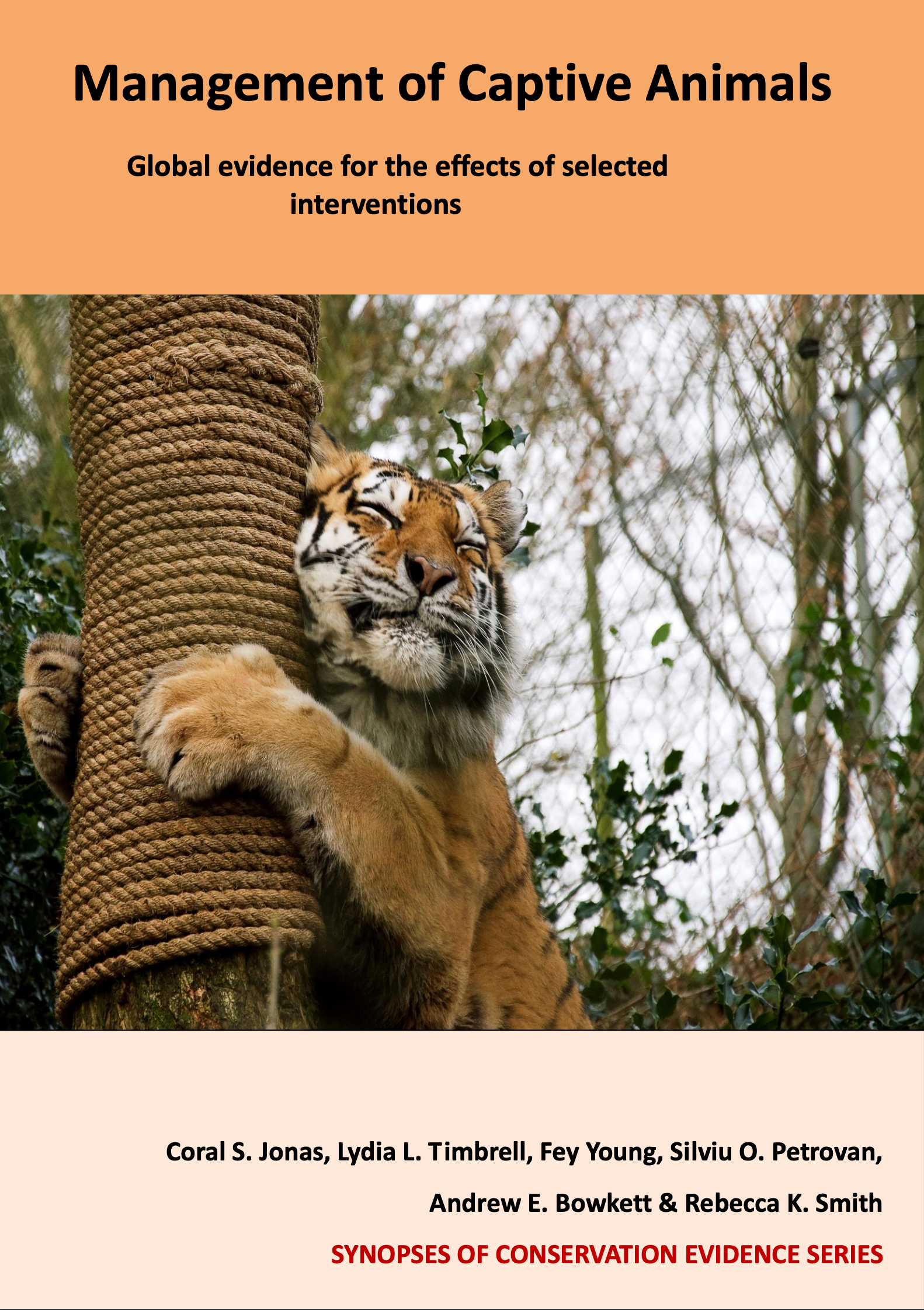Primates: Provide fresh produce
-
Overall effectiveness category Likely to be beneficial
-
Number of studies: 1
View assessment score
Hide assessment score
How is the evidence assessed?
-
Effectiveness
60% -
Certainty
40% -
Harms
1%
Study locations
Supporting evidence from individual studies
A replicated, before-and-after study in 1996 in the USA (Schapiro et al. 1996) found that when fresh produce (fruit and vegetables) were provided to rhesus macaques Macaca mulatta more time was spent feeding and less time inactive than when pellets were fed. Time spent feeding increased from 14 minutes/hour when pellets were fed to 27 minutes/hour when fresh produce was offered. Inactivity was lower with fresh produce (two minutes/hour) than when just pellets were provided (five minutes/hour). A portion of 125g of fresh produce was offered (60% fruit and 40% vegetables) for six months, with the varieties of fruit and vegetables (n=40) offered rotated weekly. The fresh produce was presented in feeding devices to 63 individually housed macaques at intervals of 1.5 hours, during which 15 minutes of animal observations were conducted on all monkeys. Fresh food was presented to each monkey every weekday for six months with control observations when just pellets were provided conducted over the same six months between times when enrichment devices were given. (CJ)
Study and other actions tested
Where has this evidence come from?
List of journals searched by synopsis
All the journals searched for all synopses
This Action forms part of the Action Synopsis:
Management of Captive Animals
Management of Captive Animals - Published 2018
Captive Animal Synopsis





)_2023.JPG)














